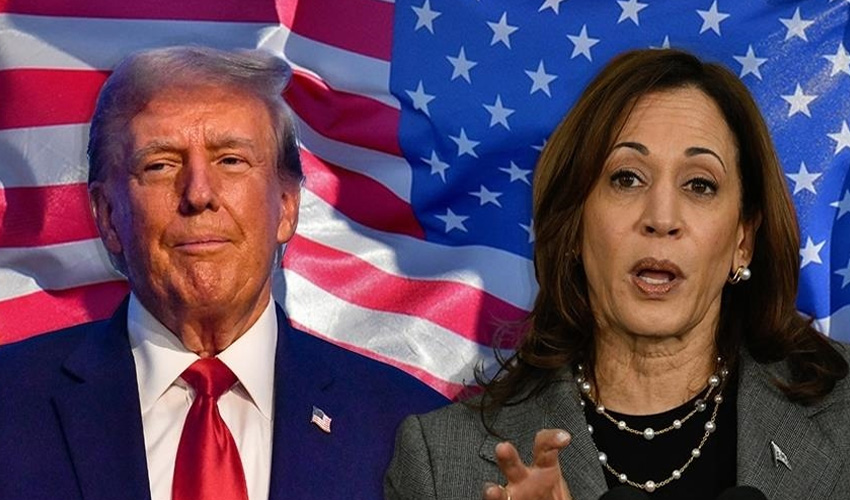As America prepares for the 2024 presidential election, a stark gender gap is emerging in the Donald Trump-Kamala Harris contest. Trump leads Harris by more than 10 percentage points among men, and Harris leads Trump by more than 10 percentage points among women. That gap says something to broader cultural shifts over the last decade as shifting gender attitudes inform policy and public discourse, and indeed the very outcome of this election.
Kamala Harris, America's first woman of colour ever to receive a presidential nomination, has taken a strategic approach to neutralizing her identity to be the central talking point about her candidacy. She hammers home that her bid is for "all Americans, regardless of race and gender," focusing instead on her qualifications and vision for this country. But gender will subtly but unmistakably define this election cycle. Exciting for many voters, yet strange or even jarring for others: "Madame President."
"The biggest hurdle," an insider from the campaign said, passing in passing, "will be stealth sexism" that may deny a woman the presidency. Few Americans will step forward as overtly bigoted against a female Oval Office occupant. More often, coded language portrays Harris as "unprepared" or lacking "what it takes" that really sounds more about gender than about policy.
That language echoed 2016 when the Democratic Party was defined by Hillary Clinton's "I'm with Her" mantra and similar distrust over women in power.
There isn't much to the current revelation, though there is a major gap in how the sexes in this society voted during elections. To a certain degree, one would expect societal changes have only heightened it. The past year-and-a-half since the appearance of the #MeToo movements drastically altered how social forces address gender inequality with female leaders holding top political and financial positions was also at work. The social pressures worked in making Harris more likely to serve as president but, as always with strong social reforms, on the other end created backlash to make Harris more controversial to voters also. Some are seeing these shifts as an attack on classic values, and men, in general, a "gender referendum" in this election.
For many of these young men, this election has become much more than just a matter of party platforms. Feeling left out as the world embraces diversity and inclusion, they are frustrated and disconnected, not in fact hostile toward equality but rather left out of the deal. Here is how polling director John Della Volpe describes these men:.
That allowed Donald Trump to tap this sentiment by dramatizing his own brand of masculinity. He speaks to those men who feel pushed away by societal changes and speaks to them in a language and with rhetoric in which they would be interested to hear. Trump's recent rallies have even turned out to be flagrant cases of "locker-room talk" in portraying the candidate as unapologetically masculine, being a kind of rebellion against what Trump and his followers consider extreme political correctness. His campaign has publicly excluded any gender bias against Harris, labeling her "weak" and "dangerously liberal," but the undertones of his appeal to masculinity are unmistakable.
As Trump hews to this identity-based rhetoric, his campaign resonates with a lot of men who feel dislodged by contemporary social norms. His declaration that "Manhood is Under Attack" speaks directly to male voters who perceive themselves as being sidelined in the gender equity debate.
The Democrats' Strategy: Tough Love
The Democrats, on the other hand, have reacted differently to the disaffected male voters. Former President Barack Obama, who has been vocal in his endorsement of Harris, recently admitted that some men may not like the idea of a woman being president. His message? It is time to "get over it." Actor Ed O'Neill, in a TV ad endorsing Harris, encouraged male voters to "Be a man: Vote for a woman." The blunt appeal represents the Democrats' approach in challenging men to broaden their perspectives on leadership, appealing to progressive values of gender equity.
Social Upheaval Behind the Divide
The broader context of the 2024 election reflects America's social upheaval of recent years. Since Trump won the presidency in 2016, young American women have become much more liberal and some of them have excelled in education and career fields outperforming males, while the case is different for young men, who have had educationally, relationally, and with respect to mental health setbacks. Over the past seven years, data shows that a significant percent of young men feel that America has gone "too far" in promoting gender equality, leaving a growing sense of disillusionment within that demographic.
Trump's stake in this sense of discontent is serving to solidify his lead among male voters. Harris, meanwhile, built her case on unity and inclusion and strengthened her appeal in the women's vote.
The election has, at this point, become nothing less than a symbolic contest of gender ideologies, pitting traditional masculinity in a man with Trump against movement toward change on gender for a woman in Harris.
Recent New York Times polls indicate that in the final stretch of the campaign, Trump leads men by 14%, while Harris enjoys a 12% lead among women. This is a stark division that can easily make gender the determinant of who becomes the next president. While Trump is rallying support with his unapologetic brand of masculinity, Harris continues to drive home her qualifications in an effort to bridge the gap with undecided voters.
It's far from clear what will result, but one thing is very clear: never have men and women voters been divided by such a great gulf, or perhaps had that divide matter so much. The divide will have to be traversed for both of these campaigns because, of course, America votes in not just a presidential election but a referendum on the definition of leadership in America.



























